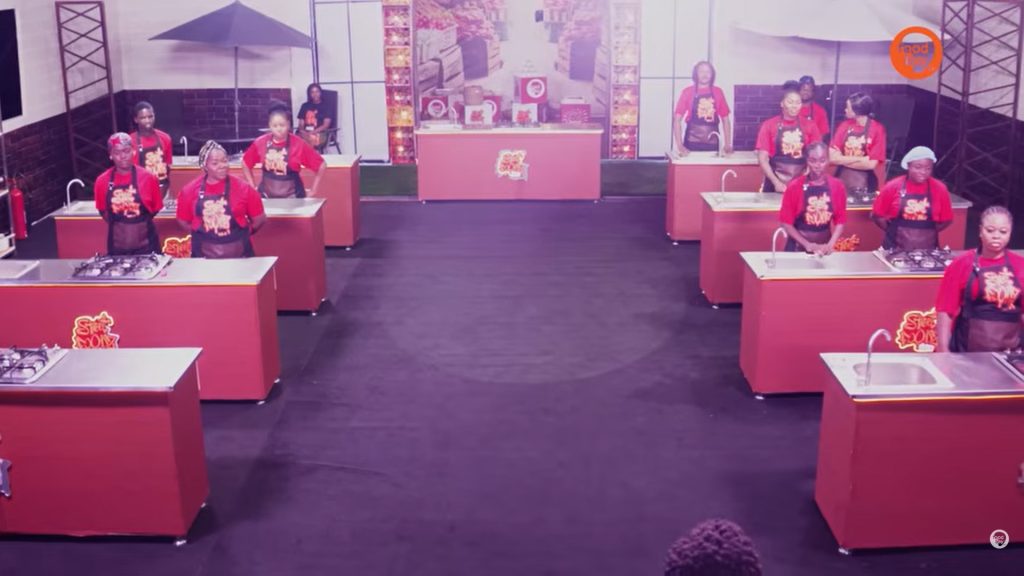INTRODUCTION
When people hear the phrase “food industry”, the first things that often come to mind are
cooking, eating, and maybe farming. Some might picture a chef plating up a fancy dish, or the
woman at the buka stirring a hot pot of stew. And while those are all valid parts of it, they’re just
small pieces of a much bigger picture.
The truth is, the food industry is massive. It’s made up of systems, people, and innovations that
reach far beyond the kitchen or the market. From farm to fork, screen to shelf, food touches
nearly every sector you can think of. Whether you’re cooking it, moving it, filming it, selling it,
researching it, or eating it, you’re engaging with an industry that feeds both bodies and
economies.
Let’s take a closer look at just how wide this space really is.
1. Agriculture and Farming – The Foundation of It All
Every food journey begins with cultivation. Before the rice gets fried or the tomatoes get
blended, someone has to grow and harvest them.
Farming is the backbone of the food industry. It includes everything from rural subsistence
farmers working small plots to large-scale agribusinesses managing hundreds of hectares.
Crops like cassava, rice, maize, yam, and vegetables are just one part. There’s also poultry, fish
farming, and livestock rearing.
In Nigeria, agriculture contributes more than 20% to the GDP, and food crops play a significant
role in that figure. Yet, it often goes unnoticed how many people are involved in food production
before anything even gets to the kitchen.
2. Logistics and Transportation – The Hidden Connectors
It’s one thing to grow food. It’s another thing to get it to where it’s needed.
Food moves across long distances in this country. Tomatoes from the North, plantain from the
South, onions from the Middle Belt. They all have to be transported, sometimes through difficult
roads and rising fuel costs.
Behind that movement are truck drivers, logistics companies, cold storage operators, offloaders
at markets, and supply chain managers. Without them, food doesn’t get to the markets fresh.
And when they face challenges, the ripple effect is visible in food prices, scarcity, and even
waste.
3. Hospitality and Food Service – What We See Most
This is probably the most visible part of the food industry. Think bukas, restaurants, cafés, suya
joints, food trucks, and even ghost kitchens. They’re the ones feeding the public directly.
From small canteens tucked behind office buildings to large fast-food franchises, these
businesses make up a big part of the daily food experience for Nigerians. They also create
employment for cooks, servers, cleaners, caterers, kitchen assistants, and cashiers.
But even here, there’s more than meets the eye. There’s kitchen management, customer
experience design, procurement teams, and back-end operations that most diners never see.
4. Food Media, Content, and Storytelling – Telling the Food Story
Food has always had cultural value, but in today’s world, it also lives online.
Scroll through Instagram, TikTok, or YouTube, and you’ll find cooking tutorials, street food reels,
restaurant reviews, and recipe hacks. What you’re seeing is an entire content economy driven
by food.
At FoodBay TV, for example, shows like My Kitchen Playlist and Food Quest bring food and
personality together in fun and fresh ways. Street Foodz Naija, which also airs under the
FoodBay TV umbrella, is currently the biggest culinary reality show in Nigeria, celebrating food
entrepreneurs across the country.
But beyond TV, food media includes bloggers, photographers, stylists, producers, editors, social
media managers, and digital marketers. It’s an entire value chain on its own, and it keeps
growing.
5. Food Tech and Innovation – The Industry is Getting Smarter
Technology is reshaping how food is grown, packaged, delivered, and even eaten.
In Nigeria, platforms like Chowdeck and Jumia Food have changed the way people order food.
On the farming side, some agritech startups are helping farmers access better tools and
markets. There are also startups working on food traceability, farm data collection, and smart
storage solutions.
Globally, there’s research into lab-grown meat, AI-generated recipes, and vertical farming. It’s
proof that the food industry is evolving and welcoming innovators and technologists, too.
6. Nutrition and Public Health – Because Food is Medicine
Food doesn’t just satisfy hunger. It plays a major role in health, healing, and wellness.
That’s where nutritionists, dietitians, food scientists, and public health experts come in. Their
work covers everything from school feeding programs to diabetes-friendly diet plans. They
advise on balanced eating, food portioning, and how to prevent or manage illnesses through
diet.
There’s also the role of food safety agencies, like NAFDAC, that regulate what goes on the
shelf, what gets imported, and how food should be processed and labeled.
7. Consumer Products and Retail – Everyday Food, Packaged and Sold
The food industry also lives in stores and supermarkets. Packaged foods, condiments, snacks,
and bottled drinks all belong here.
Behind every pack of chin-chin or tomato paste is a line of people: product developers, branding
specialists, factory workers, distributors, and marketers. This segment includes both small-scale
producers making local spices in sachets and big FMCG companies stocking major retail
chains.
It’s one of the most competitive and recognizable faces of the food industry.
Final Thought: Most People Are Already in the Food Industry and Don’t
Know It
Whether you’re a digital creator filming food content, a logistics operator moving produce, a
student reviewing food brands on social media, or someone who just loves trying new recipes
and posting them, you’re already part of the food ecosystem.
The food industry isn’t just for chefs or farmers. It’s wide enough for writers, tech developers,
designers, filmmakers, researchers, event planners, and more. The opportunities are
everywhere — you just need to know where to look.
So the next time someone says, “I want to enter the food space”, remember: you might already
be in it.



